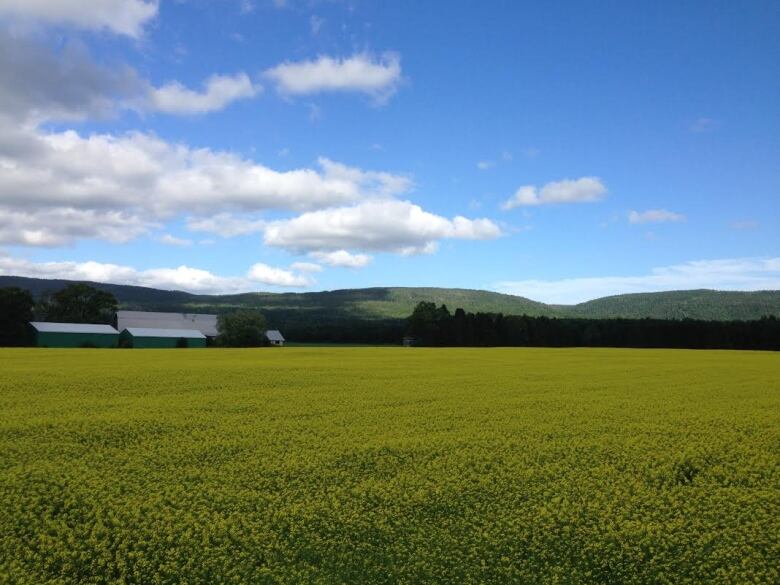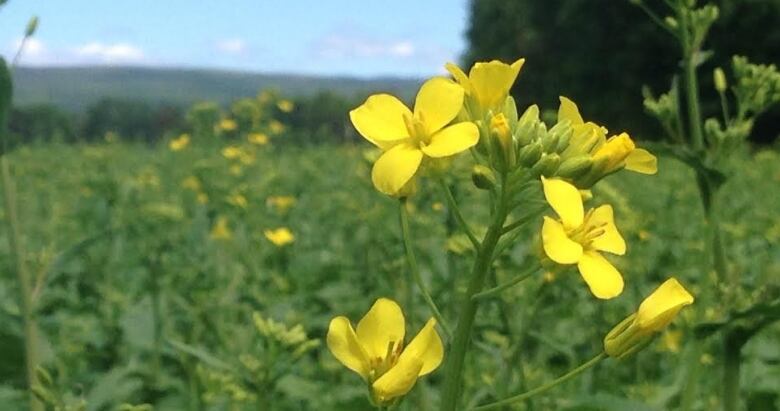Canola crop opens new farming options in Pasadena
It may be an experimental crop, but canola fields have farmers and passersby seeing gold in Pasadena, on the west coast of Newfoundland.
Planted this spring, the 30-acre field is a part of a $1-million research program undertaken by the provincial forestry and agrifoodsagency.
"Canola has never been planted in Newfoundland before," said program researcher Karen Kennedy.
"This is really exciting ... we are already bringing in the exact same crop."

According to the Canola Council of Canada, canola contributed $19.3 billion to the Canadian economy and is considered the country's most valuable crop. It can be made into edible oil, bio-fuels and feed for livestock.
"When we harvest this, we will get the seeds that come out of the pods here on the bottom of the plant," explained Vanessa Kavanagh, a provincial grain research specialist.
"We will press the seeds, and squeeze out the oil essentially, physically, mechanically, and the oil can be used as a nutrient for the dairy industry or livestock industry or it can be used as an oil for ourown personal consumption in restaurants or in our homes," Kavanagh added.
Remarkably, the Pasadena fieldis pollinated by its own population of 40 honeybee hives.
"Honeybee producers request that no herbicides or pesticides be sprayed," Kennedy said."So we don't do any of that here."

The Pasadena crop will maintain its golden colour for another few weeks and then the flowers will close into pods which are the source of the valuable oil. Kennedy said it will then be harvested in the fall.
Researchers have expressed their excitement at the project's success, but it is up to the province's farmers to adopt the crop in order to reap the benefits, said Kavanagh.
"We are hoping canola is going to fit into our system for years to come this is a feed that all of our farmers will provide for themselves."













_(720p).jpg)


 OFFICIAL HD MUSIC VIDEO.jpg)
.jpg)



























































































